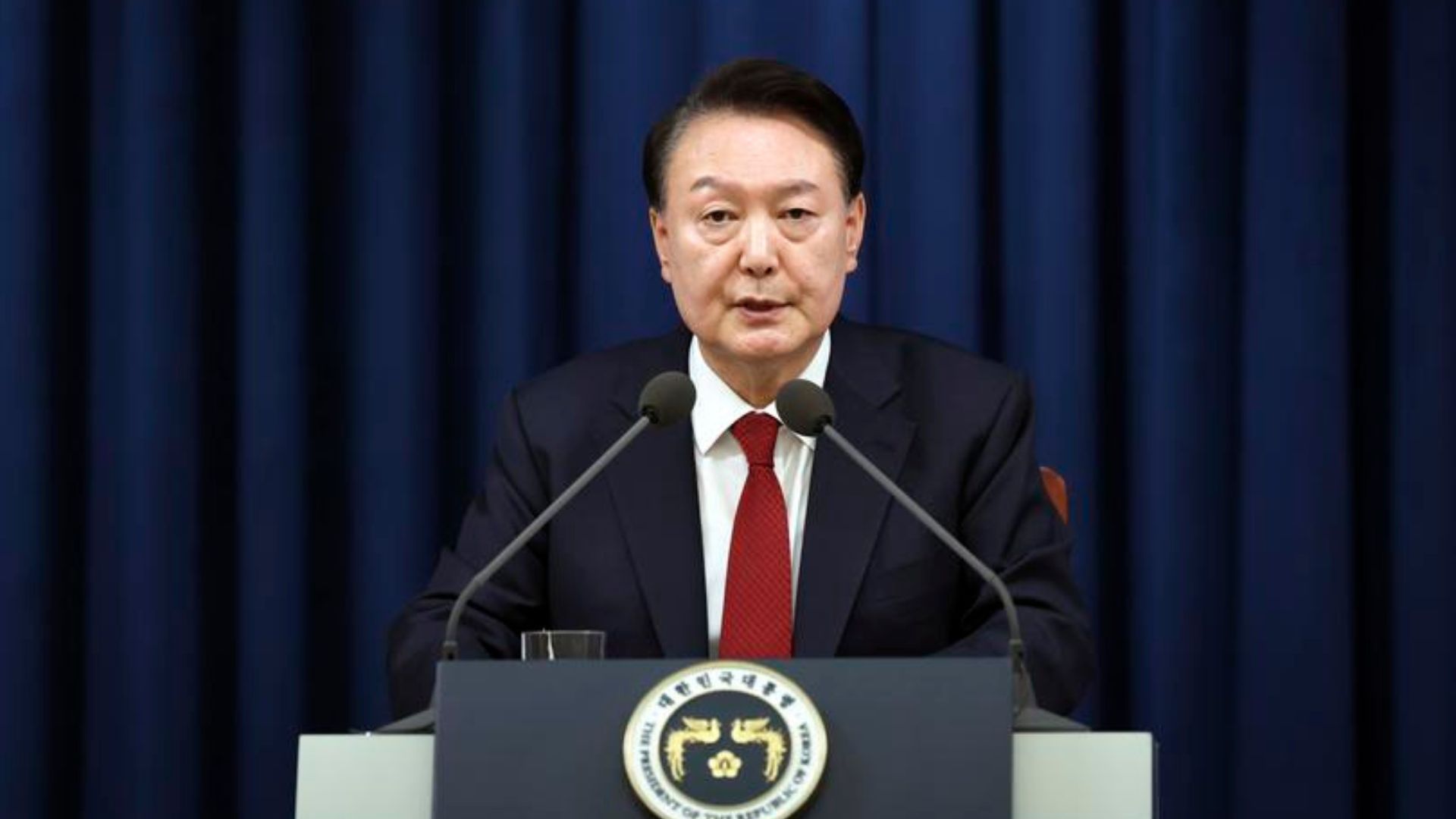(CNN): In an unprecedented development in South Korean history, President Yoon Suk Yeol was taken into custody for interrogation by the nation's anti-corruption agency. In the midst of a political crisis brought on by his contentious imposition of martial law last month, he was arrested Wednesday.
Yoon was taken from his residence in a motorcade under heavy security, the first such action against a sitting president. The Corruption Investigation Office for High-Ranking Officials (CIO) stated that Yoon faces multiple criminal investigations, including allegations of insurrection—a charge that could carry a life sentence or even the death penalty.
Since his detention, Yoon has refused to cooperate fully, declining to answer investigators’ questions or allow the sessions to be recorded. The CIO disclosed that Yoon is expected to be transferred to a detention center where he will be held in solitary confinement for security reasons.
For weeks, , guarded by his Presidential Security Service, and resisted capture. His security detail and military soldiers blocked law enforcement officers during a previous effort to capture him earlier this month, resulting in a standoff.
Following his arrest, Yoon made a video statement in which he denounced the probes as "illegal" and asserted that South Korea's rule of law had broken down. Instead of accepting the validity of the legal measures against him, he insisted that his compliance was intended to prevent violent altercations.
In December, Yoon imposed martial law, saying it was necessary to defend South Korea from "anti-state elements" after accusing opposition lawmakers of slowing down state operations. Parliament quickly reversed the late-nightannouncement after it was widely denounced.
The public and parliamentarians, including those in his own party, have strongly opposed the president's conduct. Critics have accused him of weakening democracy and compared his decision to the nation's authoritarian past.
Shortly after declaring martial law, parliament impeached Yoon, depriving him of his presidential authority. It is now up to the Constitutional Court to decide whether to reinstate him or formally remove him. When he failed to show up, his impeachment trial, which had started on Tuesday, was swiftly postponed.
The trial will go forward whether or not Yoon shows up, and it might take up to six months. Finance Minister Choi Sang-mok is now the acting leader after parliament impeached Prime Minister and acting President Han Duck-soo, further escalating the political unrest.
During the arrest, Yoon's supporters and critics braved the bitter cold to gather outside his home. Signs and messages supporting and criticizing the ailing president were displayed by protesters, underscoring the polarized public opinion.
Police were seen on camera upholding order while protesters engaged in verbal altercations. One banner said, "Insurrection Department – Yoon Suk Yeol," a slogan that has come to represent demonstrations against his government.
Earlier this month, when Yoon disregarded three summonses for interrogation, the CIO obtained a detention warrant for him. His attorneys have declared the warrant "illegal and invalid," and they intend to contest its execution.
Yoon's declaration of martial law has drawn harsh criticism for eschewing constitutional safeguards. Under the pretext of national security, his detractors contend that his measures were an attempt to bolster his authority and marginalize political rivals.
Yoon has maintained his defiance and denied the validity of the legal actions against him in spite of the criticism. The probes, according to his supporters, are illegal in South Korea and politically motivated.
The government of South Korea has been rocked by the political crisis, and other high-ranking officials, such as the justice minister and prosecutors, have been the target of impeachment motions. Amidst the continuing instability, the Constitutional Court has pledged to give priority to these matters.
The martial law declaration has revived memories of South Korea’s authoritarian era, with opponents warning of the dangers of eroding democratic principles. Yoon’s legal team argues that his actions were necessary to protect the country’s constitution and governance.
The government is in chaos as a result of Yoon and other high-ranking officials being impeached, and the Constitutional Court's decisions are still pending to decide the administration's destiny. These events are seen by observers as a serious challenge to South Korea's democratic systems.
Yoon has charged opposition MPs with planning an effort to undermine his administration. His supporters maintain that the imposition of martial law was a justifiable reaction to dangers to the stability of the country.
Working with the defense ministry and police, the CIO has encountered several difficulties in conducting its investigations, underscoring the difficulties in holding a serving president responsible.
Widespread discussion over accountability and governance in South Korea has been spurred by the aftermath of the declaration of martial law and the arrests that followed. Concerns on the consequences for the nation's democracy have been voiced by numerous citizens.
The ruling on Yoon's impeachment by the Constitutional Court will probably influence politics for years to come. As the court considers the issue a "top priority," the country waits to learn whether the president's actions were lawful and what its leadership's next course is.
The crisis that is developing highlights how vulnerable democratic institutions are to executive overreach. South Koreans continue to disagree on the legitimacy and legacy of Yoon's presidency as events unfold.


























